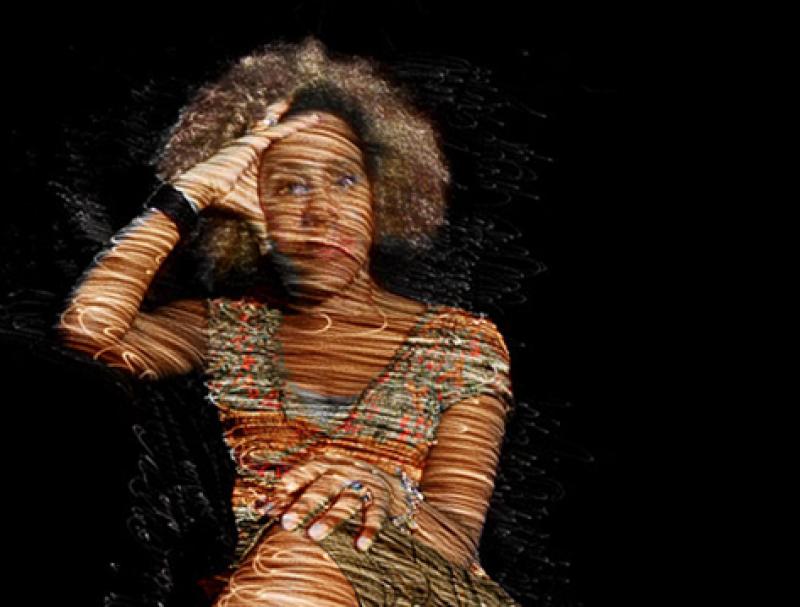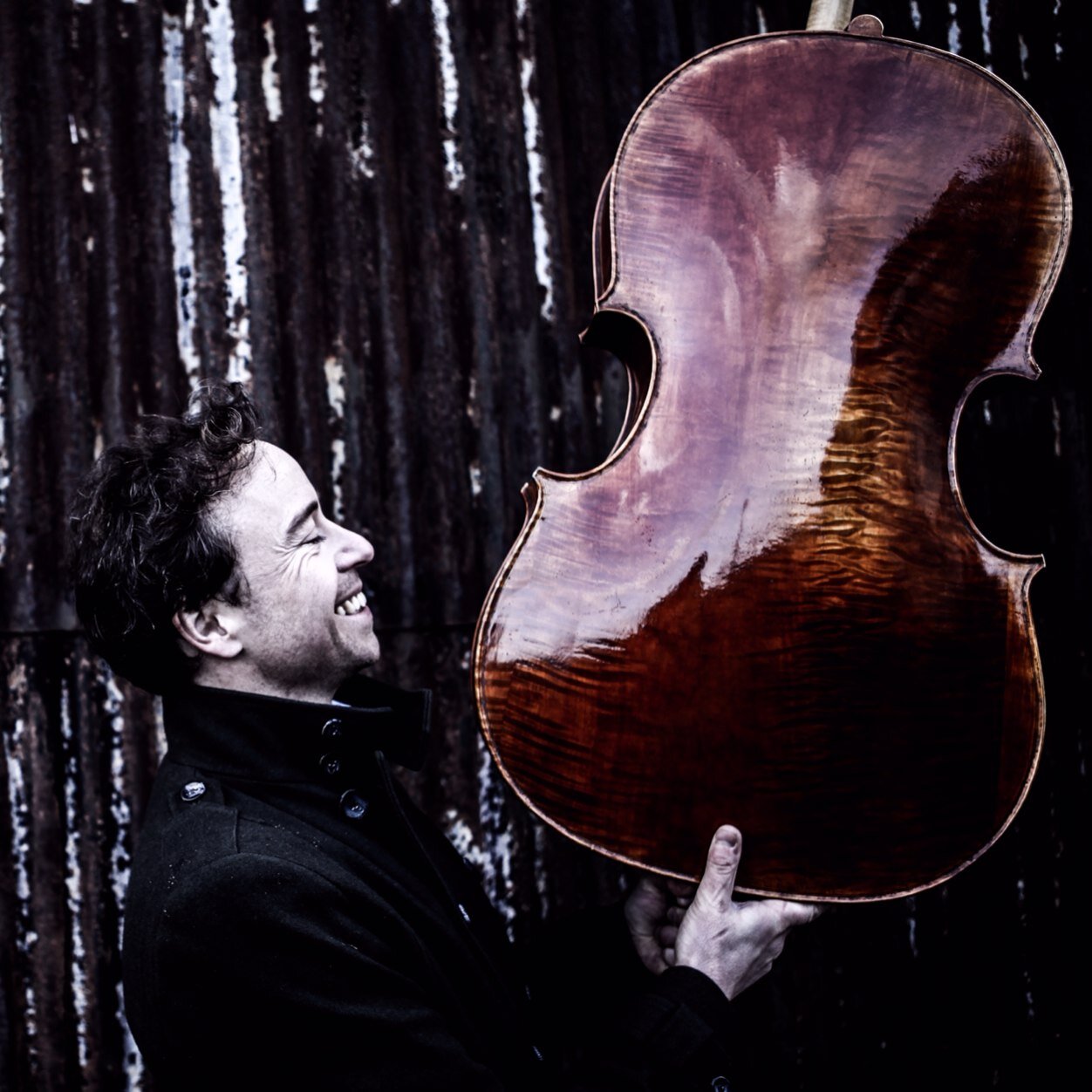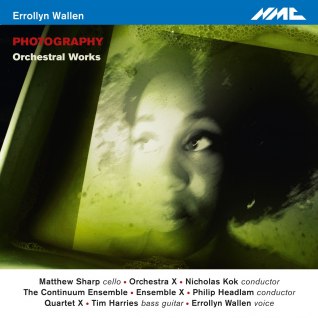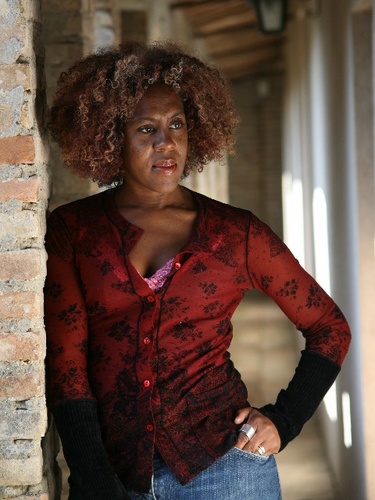10 Questions for Composer Errollyn Wallen | reviews, news & interviews
10 Questions for Composer Errollyn Wallen
10 Questions for Composer Errollyn Wallen
The dynamic musician on creative processes and her new CD PHOTOGRAPHY

Errollyn Wallen is celebrated both as a singer-songwriter and for her rigorous and communicative contemporary new music. Her works include 13 operas and a plethora of orchestral, choral, chamber works, solo and ensemble piano music and concertos, as well as award-winning music for film and TV; her Principia and Spirit in Motion were featured in the London Paralympics opening ceremony in 2012.
Born in Belize, she moved to the UK with her family at the age of two. She studied at Goldsmith’s College, King’s College London and King’s College, Cambridge. Her Concerto for Percussion and Orchestra was the first work by a black woman to be performed at the Proms. She was the first woman recipient of the Ivor Novello Award for Classical Music in 2013. She was awarded an MBE in 2007.
Her latest album of orchestral works, PHOTOGRAPHY, is released by NMC on Friday and features her Cello Concerto (with Matthew Sharp, cello), Photography for string orchestra, Hunger, and In Earth, Wallen’s arrangement of Dido’s Lament from Purcell’s Dido and Aeneas. Performers include Orchestra X conducted by Nicholas Kok, the Continuum Ensemble and Ensemble X conducted by Philip Headlam, Quartet X, Tim Harries (bass guitar) and Wallen herself (voice).
JESSICA DUCHEN: How did the new album PHOTOGRAPHY come together?
ERROLLYN WALLEN: We recorded one work, Hunger, several years ago, but it was too long to fit on a previous CD, so I’d hoped to include it on an orchestral album someday. Then in May 2014 the singer and cellist Matthew Sharp played my Cello Concerto at Kings Place. It was only the second time he’d performed it live, but after the first performance in 2007, we realised there was something special about that piece and were keen to find an opportunity to record it. When NMC said they’d like to do a disc of my work, I jumped at the chance – and everything fell into place, because the concerto is for cello and strings, and Photography, which like the concerto was commissioned by the Orchestra of the Swan, is for string orchestra, so it made sense.Much of the album is my associations with colleagues who’ve become close friends. All the performers are people I admire and with whom I’ve worked for a long time in various guises. For instance, the conductor Nicholas Kok has been a friend ever since I first went on an Opera Lab course many years ago. I do hope people will enjoy the recording; I feel I was being honest when I composed this music and I am very proud of this album.
 For the Cello Concerto you were inspired by the personality and musical style of the soloist, Matthew Sharp (pictured left) – does that perhaps make it a little like writing an opera, which is a speciality of yours?
For the Cello Concerto you were inspired by the personality and musical style of the soloist, Matthew Sharp (pictured left) – does that perhaps make it a little like writing an opera, which is a speciality of yours?
When I was writing the concerto, it felt as little as if I was chiselling something from a piece of granite. I wanted to write a piece full of contours. It’s very expressive music, yet I wasn’t concentrating on expression as much as trying to maximise the potential of the notes. As for the similarity to writing opera: if you do write opera – and I’ve written quite a few – you’re aware of drama in every situation. Everything is dramatic for me; everything has dramatic potential. But again, that wasn’t uppermost in my mind. The structure was really important; I wanted to put the cadenza right at the beginning and push it as far as possible until the orchestra comes in, so the soloist has all the material that drives the work. I also wanted to write a landscape work that unfolds in a single span. But maybe because I was concentrating on all this, it freed me up emotionally and those other things happened unconsciously. A concerto is a dramatic form, a soloist pitted against a group, and there’s something aspirational about it.
You’ve cited as JS Bach as your role model. Tell us about that?
It’s because he was a complete musician: before anything, he understood performers. He performed himself, and as well as conceiving new works he saw things right through to the end. You feel his enjoyment of music-making in his works, his sense of adventure and delight. His music to me is elemental and it never fails to deliver. And when things are difficult in life – perhaps you have an idea for what you want to do, but you’re limited by time or budget or other concerns – I think, “Bach was in this exact position and he was always scrabbling around, making do”. That is music making! You’re in that situation and you just have to get on with it.
What other composers would you pick out as influences?
I think you can’t be a British composer without Benjamin Britten as a reference point. At school our music teacher really instilled in us a love of Britten, and he’s one of these practical composers who could make music out of anything. I admire his technique and his phenomenal ear.
 Given the training I had, which was wholly serial – we just didn’t write tonal music – I’m amazed that my music is full of almost old-fashioned things. There are bits of Vaughan Williams in it – how did that happen? In Photography, though, the final movement is a conscious reference to the English pastoral tradition.
Given the training I had, which was wholly serial – we just didn’t write tonal music – I’m amazed that my music is full of almost old-fashioned things. There are bits of Vaughan Williams in it – how did that happen? In Photography, though, the final movement is a conscious reference to the English pastoral tradition.
Still, your training isn’t necessarily reflected in what you create. You can be influenced by somebody without it being audible. For instance, I love Ligeti but I don’t think you can hear that in my music. Also, I never take notes for granted. I’m always thinking about them as individuals, and that comes from studying Webern, Berg and Schoenberg.
You’re of a generation in which serial and atonal music dominated one’s student days. Everything is different now, and truly eclectic. Does that make it easier or more difficult to develop your own voice?
I think that actually things have always been very pluralistic, but when I was studying there was definitely a party line and it was something unspoken. I was very happy and excited to be studying composition. Up to the age of 25, I never consciously listened to pop music, I was interested in the concert music being written in my own time and I didn’t care about anything nostalgic. Yet when I was studying, you just didn’t write tunes or explore writing for the voice, or melody, or harmony. Those things were beyond the pale. I’m happy that there’s room for everything and anyone now, as well as an explosion of world music, which has had a massive impact.
I know of composers who gave up because they felt their music didn’t fit into the prevailing attitude, so I think some damage was done by a quite narrow way of thinking. When I was at university Glass, Reich and Riley weren’t even considered. I remember being told quite sharply that I shouldn’t both write songs and write for ensembles and expect to have a career. I’m glad I ignored that advice. I sat down and wrote music and was surprised it came out as it did, but I would never have given up composing because I thought my music wouldn’t be played.
What mental processes do you go through when you’re preparing to start a new piece?
By the time I begin a work I have a lot of material ready to draw upon. The beginning is always tricky – I think it’s tricky for everybody. You have to just take a deep breath and start and accept that what you’re writing is probably not very good! Sometimes I play a game, for instance starting anywhere in the middle, so that the motor skills are going and you’ve got something on the page. It could be that what you start with is later chucked out, or you find it’s not the beginning but the middle or the end, or another piece. I set the stopwatch, decide how much I need every day and try and stick to that. If I concentrate on putting the time in, a piece will emerge eventually. It took me a while to understand my processes. More and more I think the revision stage is crucial, making sure the piece is what you want it to be.
It’s laborious, being a composer. And why is it that some works happen to capture something and you don’t know how or why, whereas with others you may work very hard on them yet they’re just not so good? But the process is always the same. There’s a point when you’re quite near the end and you feel quite despondent – so you have to go into mountaineer mode. You’re quite near the top and you’re getting altitude sickness!
In the end there’s a deadline, something’s going to have to happen and you hope it’s OK. When you’re working with musicians you can slightly shape things further, eg with the dynamics, which can have a crucial impact. After you’ve finished, the music still haunts you and you wonder if you should have written something differently… The more pieces you write, the more the music tugs at you – but you’ve got to move on and compose the next thing.
 In the past couple of years there’s been an explosion of consciousness about the marginalisation of composers who are female. Do you feel things are changing?
In the past couple of years there’s been an explosion of consciousness about the marginalisation of composers who are female. Do you feel things are changing?
Yes, I think they are – and it brings home how far behind other artforms classical music is. Things are not perfect in theatre, but they’re much more advanced. Yes, it’s changing, but it’s got to hurry up! What I’m really seeing in the young women I teach now is that they expect to have a career in music. There’s a greater confidence today among young women composers.
There is also a huge wish to increase the representation of BME communities in classical music. What are your thoughts on that?
When I was a child and loving my classical music, one of my teachers came up to me and said: “No, little girl, this isn’t the music for you.” I didn’t know what she meant. I think this is about everyone realising that every sort of music is for everybody.
There’s something about classical music which seems to be off-putting to a lot of people, whichever community they’re from, until they’re actually in a concert hall. I want every community to experience what I’ve been lucky enough to have. And I’d like to see orchestras really representing the world we live in – that’s my dream.
The whole business of music education in schools and the cutting back of tuition, though, means we’ve already lost swathes of people from poorer backgrounds. To be a musician is an elite training. You can’t just pick up an instrument at 17 and expect to be an astonishing violinist. You have to start young. I think there should be no apology made for that. We love the Olympics, we loved Usain Bolt, but he had elite training and that is OK. And to be a classical musician you have to undergo really dedicated work. You can’t just come to it through a few workshops in schools or occasional outreach projects, which are great but can’t replace consistent, continual and specialised hard work.
In which ways do student composers need most guidance today? What would you like your students to learn from you?
I’ve thought about what I’ve learned through being a professional composer that I wish I’d known when I was young. For instance, accepting that composing takes time. Learning the craft of notation, the craft of being disciplined, and understanding how much time is needed for refining pieces. I hadn’t realised the amount of work it takes to compose a piece of music. It’s an endless process, because a piece is never really perfect.
Then there’s the range of expertise you need – asking musicians questions about how their instrument works, being able to express yourself well in words, writing grant applications, being able to put budgets and projects together or form your own group, liaising with conductors. It’s not just composing; it’s being able to present yourself well in the world and being persuasive so that your music is played. It’s amazing the things composers have to learn. You need to know how to work hard and be alone, but at the same time you need to know how to get out into the world and work well with people.
How does your typical week look?
It generally involves composing every day, practising every day, a bit of teaching and, if I’m performing, some travelling. Depending on the project and what stage it is at, it’s more or less intense. In general, though, I think it’s essential to compose every day. It’s like keeping a muscle in shape. But for the new album, so much time has been spent on so much that isn’t composing, that at times I’ve thought it was easier to write the music than it was to do all of this!
What are you writing next?
I’m writing a work with Alex Bulmer called Adam’s Apple. It’s for LGBT amateur choirs, exploring how the voice changes when you’re changing sex. I’ve never, ever done anything like this before and it’s quite a challenge. Then I’m working on a musical, Liverpool Trading, with two American writers, Anita Gonzalez and Richard Aellen. It’s early days, but I think it’s time I tackled that form.
PHOTOGRAPHY: Orchestral Works by Errollyn Wallen is out on NMC on 18 March
Explore topics
Share this article
The future of Arts Journalism
You can stop theartsdesk.com closing!
We urgently need financing to survive. Our fundraising drive has thus far raised £49,000 but we need to reach £100,000 or we will be forced to close. Please contribute here: https://gofund.me/c3f6033d
And if you can forward this information to anyone who might assist, we’d be grateful.

Subscribe to theartsdesk.com
Thank you for continuing to read our work on theartsdesk.com. For unlimited access to every article in its entirety, including our archive of more than 15,000 pieces, we're asking for £5 per month or £40 per year. We feel it's a very good deal, and hope you do too.
To take a subscription now simply click here.
And if you're looking for that extra gift for a friend or family member, why not treat them to a theartsdesk.com gift subscription?
more New music
 Emily A. Sprague realises a Japanese dream on 'Cloud Time'
A set of live improvisations that drift in and out of real beauty
Emily A. Sprague realises a Japanese dream on 'Cloud Time'
A set of live improvisations that drift in and out of real beauty
 Trio Da Kali, Milton Court review - Mali masters make the ancient new
Three supreme musicians from Bamako in transcendent mood
Trio Da Kali, Milton Court review - Mali masters make the ancient new
Three supreme musicians from Bamako in transcendent mood
 Hollie Cook's 'Shy Girl' isn't heavyweight but has a summery reggae lilt
Tropical-tinted downtempo pop that's likeable if uneventful
Hollie Cook's 'Shy Girl' isn't heavyweight but has a summery reggae lilt
Tropical-tinted downtempo pop that's likeable if uneventful
 Pop Will Eat Itself's 'Delete Everything' is noisy but patchy
Despite unlovely production, the Eighties/Nineties unit retain rowdy ebullience
Pop Will Eat Itself's 'Delete Everything' is noisy but patchy
Despite unlovely production, the Eighties/Nineties unit retain rowdy ebullience
 Music Reissues Weekly: The Earlies - These Were The Earlies
Lancashire and Texas unite to fashion a 2004 landmark of modern psychedelia
Music Reissues Weekly: The Earlies - These Were The Earlies
Lancashire and Texas unite to fashion a 2004 landmark of modern psychedelia
 Odd times and clunking lines in 'The Life of a Showgirl' for Taylor Swift
A record this weird should be more interesting, surely
Odd times and clunking lines in 'The Life of a Showgirl' for Taylor Swift
A record this weird should be more interesting, surely
 Waylon Jennings' 'Songbird' raises this country great from the grave
The first of a trove of posthumous recordings from the 1970s and early 1980s
Waylon Jennings' 'Songbird' raises this country great from the grave
The first of a trove of posthumous recordings from the 1970s and early 1980s
 Lady Gaga, The Mayhem Ball, O2 review - epic, eye-boggling and full of spirit
One of the year's most anticipated tours lives up to the hype
Lady Gaga, The Mayhem Ball, O2 review - epic, eye-boggling and full of spirit
One of the year's most anticipated tours lives up to the hype
 Slovenian avant-folk outfit Širom’s 'In the Wind of Night, Hard-Fallen Incantations Whisper' opens the door to inner space
Unconventional folk-based music which sounds like nothing else
Slovenian avant-folk outfit Širom’s 'In the Wind of Night, Hard-Fallen Incantations Whisper' opens the door to inner space
Unconventional folk-based music which sounds like nothing else
 'The Art of Loving': Olivia Dean's vulnerable and intimate second album
Neo soul Londoner's new release outgrows her debut
'The Art of Loving': Olivia Dean's vulnerable and intimate second album
Neo soul Londoner's new release outgrows her debut
 Music Reissues Weekly: The Peanut Butter Conspiracy - The Most Up Till Now
Definitive box-set celebration of the Sixties California hippie-pop band
Music Reissues Weekly: The Peanut Butter Conspiracy - The Most Up Till Now
Definitive box-set celebration of the Sixties California hippie-pop band

Add comment